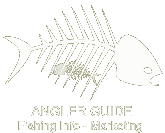 |  |
|
Navigation - Business - Great Lakes - Great Plains - Northeast - Northwest - Rocky Mountains - Southeast - Southwest - Technology - Trophy Catches
|
Floatline fishing, sometimes called “jug fishing,” allows Kansas anglers to use no more than eight floatlines with no more than two hooks attached to each line. A floatline permit (available for $2.50) is required, enabling department staff to survey floatline anglers during this three-year pilot program. A valid Kansas fishing license is also required, unless exempt by law. During this season, anglers are allowed to set eight floatlines or eight setlines, but not both. In addition to floatlines, an angler may fish with two poles, or three poles with a three-pole permit ($6.50). All floatlines must be under immediate supervision of the angler and must be removed from the water when fishing ceases. As with setlines, floatlines must be tagged with the owner's name and address. Materials used for floats are restricted to "closed cell" devices made of solid plastic, wood, or foam; metal, glass or any other hollow material is not allowed. Because closed-cell floats do not hold water, they are less likely to spread zebra mussels or other aquatic nuisance species. Even closed-cell floats should be cleaned and dried before being moved to another body of water.
Comments
«Back | News Home
| |||||||||||||||||||||||||||||||||||